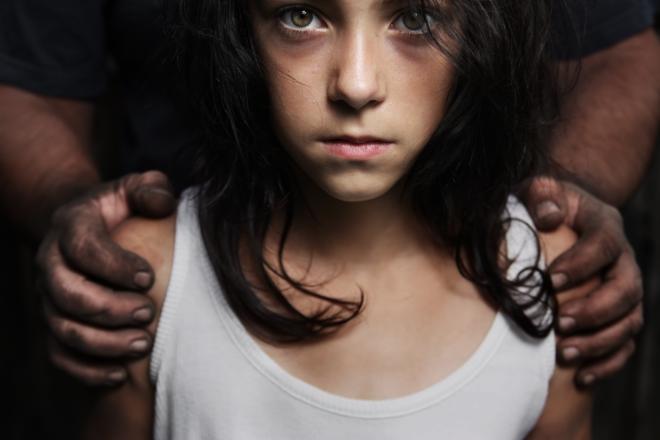What is hebephilia? Hebephilia is a mental disorder characterized by a strong sexual interest in children who have not yet reached puberty. People with hebephilia are typically attracted to children aged 11 to 14, although some may be attracted to younger children or older adolescents. If you know someone who may be suffering from hebephilia, it is important to seek help from a professional. In this blog post, we will discuss the signs and symptoms of hebephilia, as well as treatment options.
Contents
What Is Hebephilia?
 Hebephilia is a psychiatric disorder that men persistent sexual attraction to pubescent children, typically those between the ages of 11 and 14. While the attraction is usually sexual in nature, it can also be non-sexual.
Hebephilia is a psychiatric disorder that men persistent sexual attraction to pubescent children, typically those between the ages of 11 and 14. While the attraction is usually sexual in nature, it can also be non-sexual.
Hebephiles are typically fixated on children within a specific age range and are unable to find adults attractive. This can cause significant psychological distress and may lead to criminal behavior if acted upon.
While there is no cure for hebephilia, treatment can help manage the disorder and prevent any harmful behaviors.
Signs of Hebephilia

There are many signs that a person may be a Hebephile. Some of these signs may include:
1. An intense interest in teenage boys or girls, particularly those who are going through puberty.
2. A tendency to view teenagers as objects of sexual desire or conquest, rather than as individuals with their own thoughts and feelings.
3. A history of sexual relationships with teenage boys or girls, or a persistent desire to engage in such relationships.
4. Use of pornography in teenage boys or girls.
5. An unwillingness to consider the potential consequences of one’s actions on teenage boys or girls, including the risk of emotional harm or pregnancy.
What Causes Hebephilia?

However, some researchers believe that it may be a result of genetic and environmental factors. For example, some studies have found that people with certain genetic conditions are more likely to develop Hebephilia.
Additionally, exposure to certain environmental factors (such as child abuse or neglect) may also increase the risk of developing Hebephilia.
There is a need to better understand the causes of this condition. However, there can be many different causes of Hebephilia.
The most common include:
-A strong attraction to pubescent children
-Exposure to child pornography
-Being sexually abused as a child
– Having a family member who is attracted to pubescent children
– Sibling incest
– Having friends who are attracted to pubescent children
Diagnosis of Hebephilia
There is no specific test or diagnostic criteria for hebephilia. Instead, the diagnosis is on the basis of a comprehensive evaluation by a mental health professional. This evaluation may include a detailed interview, psychological testing, and a review of the person’s medical and psychiatric history.
During the evaluation, the mental health professional will assess whether the person meets the criteria for hebephilia as defined in the Diagnostic and Statistical Manual of Mental Disorders (DSM-5). The DSM-5 is a guidebook that helps mental health professionals diagnose mental disorders.
However, if someone has hebephilia, a person must have a persistent and intense sexual interest in pubescent children, typically those between the ages of 11 and 14. Furthermore, this interest must be causing distress or problems in functioning. Additionally, the person must be at least 16 years old and 5 years older than the children they attract to.
Treatment of Hebephilia
There is no cure for hebephilia, but treatment can help manage the disorder and prevent any harmful behaviors. Treatment may include medication, therapy, and support groups.
Medication
There is no specific medication that can help to treat hebephilia. However, some antipsychotic medications can help to reduce sexual urges and fantasies. These medications can have side effects, so you should use these with caution.
Therapy
Cognitive-behavioral therapy (CBT) is a type of therapy that can help people change their thoughts and behaviors. CBT is very effective in treating other disorders characterized by abnormal sexual interests, such as pedophilia.
Support Groups
Support groups are a great way to connect with other people who are dealing with similar issues. These groups can provide emotional support and practical advice.
Conclusion
Hebephilia is a condition that causes someone to feel sexually attracted to children who are in the early stages of puberty. This condition is not recognized by the DSM-5, and it is still being debated among experts whether or not it should be considered a mental disorder. Those who suffer from hebephilia often have difficulties forming healthy relationships with adults, and they may find themselves compulsively seeking out sexual contact with children. There is still much research that you should do, but it is important to be aware of hebephilia so that we can better understand and help those who suffer from it.
A Word From Therapy Mantra
Your mental health — Your psychological, emotional, and social well-being — has an impact on every aspect of your life. Positive mental health essentially allows you to effectively deal with life’s everyday challenges.
At TherapyMantra, we have a team of therapists who provide affordable online therapy to assist you with issues such as depression, anxiety, stress, workplace Issues, addiction, relationship, OCD, LGBTQ, and PTSD. You can book a free therapy or download our free Android or iOS app.


